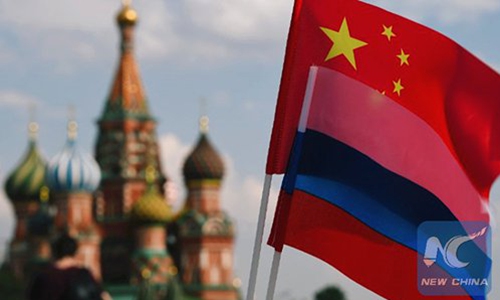HOME >> OPINION
Can the US be successful in moving military focus to China and Russia?
By Xin Qiang Source:Global Times Published: 2019/12/17 18:13:40

Photo: Xinhua
The US House of Representatives approved on December 11 a $738 billion defense policy bill, including new measures for competing with Russia and China, according to media reports. US Defense Secretary Mark Esper said on December 7 that he plans to shift US military focus to China and Russia.
Shifting military focus to China and Russia has been determined by US grand strategy. According to the National Security Strategy of the US released by the White House in December 2017, China and Russia are among the "three main sets of challengers" of US. That being said, the recent adjustment in US military resources is in line with the country's security strategy.
The US may be aware that its war on terror in the Middle East is a strategic mistake, because instead of reaching the desired results after investing huge resources, US engagement in the region has created opportunities for China's emergence. Washington may hope to make up the mistake now.
The US has become less keen on getting involved in the war on terror as it was before. Talks between the US and Taliban resumed on December 7, after realizing the Afghanistan issue cannot be resolved by military means. The Syrian crisis has eased to some extent. Washington is aware that political negotiations are imperative to tackle the conflict.
The pressure of counter-terrorism has decreased. The US does not need to devote excessive military resources in the Middle East. It seems to be possible now for the US to move resources out of the region to focus on China and Russia.
Washington has sought to adjust its strategy for a long time. Former US president Barack Obama's administration had promoted the rebalance to Asia-Pacific strategy, yet it failed to pull out of the Middle East. Thus, US President Donald Trump administration's strategy to shift focus to Asia-Pacific region is not unexpected.
However, it remains to be seen whether the Trump administration can achieve the shift. Chaos in Iran and Syria has not been resolved. If a regional war or major geographic conflict breaks out in the Middle East, it would be difficult for the US to withdraw from the region.
After shifting military focus to China and Russia, the US would relocate more military resources in the Asia-Pacific region, and reinforce its presence there. Washington may also carry out more military coordination and cooperation with its regional allies, flexing its muscle to deter Beijing and Moscow. Furthermore, the US may become more aggressive over the Taiwan question and the South China Sea issue, by sending more warships to Asia-Pacific region, selling more arms to the island of Taiwan, conducting military exercises more frequently with Japan, or even deploying intermediate-range missiles in the region.
Such potential moves would without doubt make China and Russia raise their guard. US ties with the two countries have been sliding. Shifting military focus to China and Russia will only lead to rising tensions between the US and the two major powers.
There has already been quite a few hot spots in the Asia-Pacific region, such as the South China Sea issue, Taiwan question, China-Japan disputes over the sovereignty of the Diaoyu Islands and the row between Moscow and Tokyo on four Pacific islands - called the Southern Kurils in Russia and the Northern Territories in Japan - with potential to evolve into full-blown conflicts. These tensions are remaining dormant, but US deeper involvement in the region may reignite them, complicating Asia-Pacific security.
With China's rapid emergence, there will be inevitable adjustments in ties with the US. The China-US relationship has never been static. Beijing should resist Washington's irrational moves while they should know that both of them need to make compromises in certain spheres for their interests and the general stability in their relations.
Under Washington's containment, it is crucial for China to maintain stable economic development and social stability.
China-US relations are significant, but do not constitute the entire body of China's international relations. On the international stage, China should defend multilateralism in organizations such as the UN and WTO.
It should also maintain good relations with other powers such as Russia, Japan, India and Europe, as well as developing countries. Facts speak louder than words, other countries will have their own judgments and the so-called China threat theory will collapse itself.
Sooner or later, the US will face the reality and change its destructive China policy.
The author is deputy director of the Center for US Studies at Fudan University. opinion@globaltimes.com.cn
RELATED ARTICLES:
Posted in: VIEWPOINT